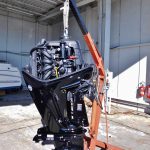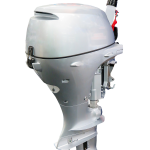
Lack of maintenance is one of the leading causes of component failure in any hydraulic cylinders Brisbane systems. And when it comes to maintenance of hydraulic cylinders, one of the components that is often overlooked by many people is the Hydraulic Seal, a non-metallic ring that blocks or separates fluid in reciprocating motion applications.
If you’ve used your hydraulic cylinder for long, you must have noticed that once the seal is worn out, the cylinder becomes less effective. Working with such a cylinder not only increases the downtime but it also results in unnecessary repairs that are expensive. At times, you just need to replace the seal so as to prevent the cylinder from leaking. A worn out seal is as clear as a drop of oil on the sand and so noticing it is easy.
How Do You Check a Worn-Out Seal?
In your hydraulic cylinder, there are sharp edges around the barrel and the stirring rod. The edges are meant to shear off the oil in circulation. When the seal is damaged, the sharp edges become rounded with oil. When such happens, more oil is allowed to pass resulting in a leakage. The rod, in this case, becomes retracted as the cylinder becomes drippy. This is a clear indication that you need hydraulic seal replacement done on the system. Replacing the seal prevents oil from leaking and dust from getting into the cylinder.
You may never know but the dust has an abrasive effect on your hydraulic system. When the particles get between the system’s barrel and spool, they scratch the cylinder surface. They can also damage the valve and meter. Besides dust, the other thing that wears your hydraulic system is a faulty reservoir breather. When the seal is worn out, air gets drawn into the breather. Uncontrolled air inlet damages the filter of the breather resulting in a leaky cylinder.
How Do You Prevent the Cylinder From Leaking?
The most formidable solution for preventing a leaky cylinder is replacing the seal. Since the seal is the most worn out part of the cylinder, replacing it is likened to hitting two birds with one stone. First, you are able to prevent dust and other contaminants from getting into the cylinder. Secondly, you save yourself from spending extra cash in replacing the whole hydraulic system.
Final Verdict
Considering the savings that you make when you replace the hydraulic seal, there is no doubt that this is the most sensible solution for preventing a leaky cylinder. In the event that your cylinder starts leaking, therefore, you should opt for hydraulic seal replacement fast.


